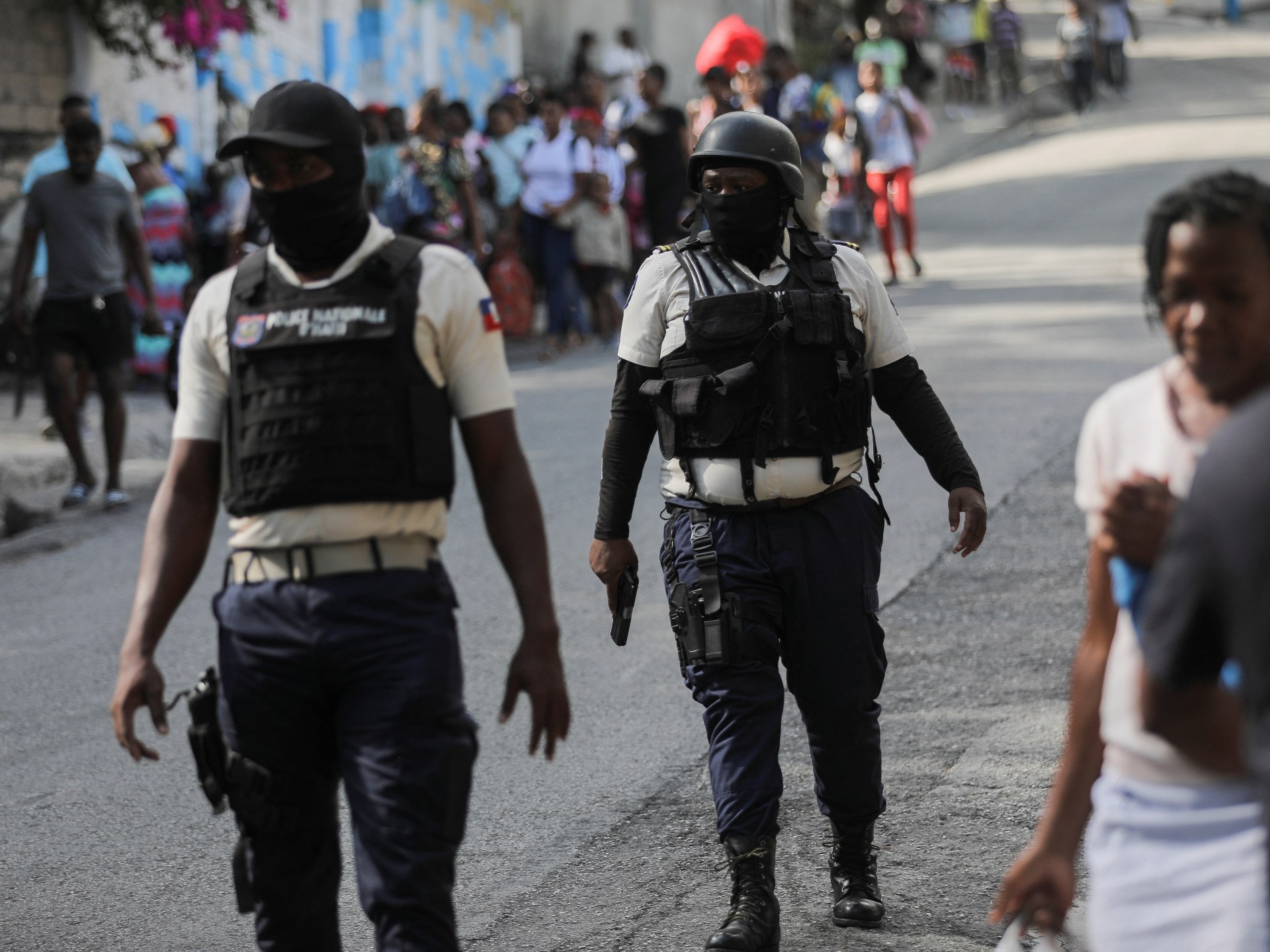Two IRGC aerospace employees ‘martyred’ in Iran
Tehran, Iran – Two members of the aerospace division of Iran’s Islamic Revolutionary Guard Corps (IRGC) have died in separate incidents while on active duty, according to Iranian state media.
The elite force’s branch in Markazi province announced in a statement carried by Iranian media late on Sunday that Ali Kamani, a member of the IRGC’s aerospace division working in Khomein, some 320km (200 miles) south of the capital Tehran, was killed in a “driving accident” while on an unspecified mission.
Then, early on Monday, the semi-official Fars news website, affiliated with the IRGC, reported that another member of the IRGC’s aerospace division, a 33-year-old called Mohammad Abdous, had also died while on mission.
The labelling of both deaths as “martyrdoms” possibly indicates that the IRGC believes the men to have been killed.
No details of Abdous’ death were published, other than that he passed away on Sunday in the northern province of Semnan.
Suspicious deaths
Kamani and Abdous’ are the latest in a string of mysterious deaths that have occurred in the past few weeks.
One of them, an IRGC Quds Force colonel, Ali Esmaeilzadeh, was reported by state media to have died in an accident earlier this month.
The semi-official Tasnim news agency, which is close to the IRGC, rejected claims by a London-based Iranian opposition television channel that Esmaeilzadeh was eliminated by the IRGC over suspicion of involvement in the May 22 assassination of another colonel.
Tasnim described the claim as “psychological war and news fabrication” and said he fell from the unsecured balcony of his home.
On May 31, an aerospace engineer called Ayoob Entezari died under suspicious circumstances. Israeli media, which claimed Entezari had worked on Iran’s missile and drone programmes, said he had been poisoned at a dinner party, and that the host had fled the country.
But the judiciary in Yazd, where he died, called the 35-year-old Entezari an “ordinary employee at an industrial company” who died from an unspecified “illness” at a hospital and had nothing to do with the IRGC.
Prior to that case, on May 26, Iran’s defence ministry confirmed that an engineer, Ehsan Ghadbeigi, had been “martyred” and that another person was injured after an “accident” occurred at the Parchin military complex near Tehran. The New York Times reported at the time that Ghadbeigi had been killed in a suspected Israeli drone attack.
The most high-profile case in the last few weeks came on May 22, when Quds Force Colonel Hassan Khodaei was assassinated – shot five times by two motorcyclists as he returned home in Tehran. He was described as a “defender of the shrine” – a term used to describe anyone who works on behalf of Iran in Syria.
The Israel link
The commander-in-chief of the IRGC, Hossein Salami, publicly blamed Israel for assassinating Khodaei, and many top officials have vowed revenge.
Khodaei’s killing was the most high-profile assassination on Iranian soil since the November 2020 murder of top nuclear scientist Mohsen Fakhrizadeh.
Iran has blamed the assassination of Fakhrizadeh, and several sabotage attacks on its nuclear and military sites, on Israel, which is also thought to have been behind several other assassinations of nuclear scientists inside Iran in the past decade.
The other recent deaths, however, have not been officially confirmed as killings by Iran, and have also not publicly been linked to Israel.
But tensions between the two archenemies have significantly escalated in the past few months as Israel continues to warn that Iran is advancing towards building a nuclear bomb and that it reserves the right to take measures to thwart it.
Iran says its nuclear programme is strictly peaceful.
The Israelis also appear to be stepping up their attacks on Iranian interests in Syria, where Tehran has militarily backed President Bashar al-Assad’s government in the country’s civil war.
On Friday, Israel was blamed for a missile attack at the Damascus International Airport in Syria that caused “heavy” damage in an attack suspected of being aimed at Iranian interests in the area.
The attacks come as the chances of restoring Iran’s 2015 nuclear deal with world powers have decreased in recent months as negotiations with the United States – which unilaterally abandoned the deal in 2018 – have stalled.
Iran has also conducted its own anti-Israel operations. The most high-profile Iranian hit on an alleged Israeli target came in mid-March when the IRGC launched ballistic missiles at a site in Erbil in northern Iraq’s Kurdish region, which it said was operated by Israel’s Mossad spy agency.
The IRGC also shelled an area in Erbil last month that it said was held by “terrorist groups”.
Iranian media’s focus on some other incidents is also cited by some as a potential indication of Tehran’s involvement.
In recent weeks, Iranian media outlets have covered several fires that have broken out in Israel, without assigning responsibility to any group.
They also extensively covered a drone attack in Erbil last week, when some reports indicated that a Mossad operative was targeted in a vehicle. Israeli media mocked the drone attack, saying no Mossad operative was at the scene.




